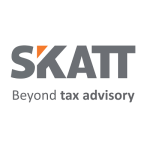The Mexican tax administration has been very open and clear on its intention to cut down on aggressive tax planning and tax evasion. The message has been pivotal to their communications, whether it be through the interviews, conferences, rules, criteria or reforms. In 2019, the Congress approved several reforms that were very much control-oriented and granted the Mexican tax authorities several tools to allow them to have additional visibility over taxpayers' transactions and day-to-day compliance, as well as mechanisms to significantly persuade tax collection.
However, all this comes at the eve of what can become one of the worst economic crises of recent times. Of course, it was completely unforeseen, however there has been no change in this approach or policy.
This article explores the OECD's suggestions for countries to help alleviate the negative effects of the pandemic, and considers what Mexico and other countries have done.
International response to economic challenges
On March 16 and 20, the OECD issued two simple documents stating that the COVID-19 emergency will affect the lives of many people around the globe. The documents suggested that there were a number of ways that governments and tax administrations could ease burdens on taxpayers, and support businesses and individuals with cash-flow problems or difficulties in meeting tax reporting or payment obligations.
In this regard, it mentioned that suggestions were intended to assist administrations globally in their consideration of appropriate measures in their own national contexts to help taxpayers during the difficult period. It considered that the immediate priority was to respond quickly to support households and improve liquidity for businesses to keep the productive capacity of economies intact as much as possible. These included the following matters focused on tax:
Waiving or deferring employer and self-employed social security contributions, as well as payroll related taxes;
Providing tax concessions for workers in health and other emergency-related sectors;
Deferring payments of VAT, customs or excise duties for imported items;
Speeding up refunds of excess input VAT;
Simplifying procedures for claiming relief from VAT on bad debts;
Adjusting the required advance payments on the basis of a revised expected tax liability;
Increasing the generosity of loss carry-forward provisions;
Extension of deadlines;
Deferral of payments;
Remitting penalties and interest;
Debt payment plans;
Suspending debt recovery;
Quicker refunds;
Consideration of not auditing taxpayers during the crisis (other than where fraud is involved); and
Enhanced services and communication.
Global reactions
With this, based on the report issued by the OECD on April 21 2020, it can be seen that several countries have taken significant measures. Most actions are related to the granting of additional time for dealing with tax affairs, the extension of deadlines, the deferral of payments, remitting penalties and interest, debt payment plans and suspending debt recovery. The actions also include quicker refunds to taxpayers, temporary changes in audit policy and ways to provide quicker tax certainty and enhanced taxpayers services and communication initiatives. In sum, we can see the following:
Albania, Angola, Australia, Austria, Azerbaijan, Belgium, Bolivia, Brazil, Canada, Chile, China, Colombia, Croatia, Cyprus, Czech Republic, Dominican Republic, Ecuador, El Salvador, Finland, Georgia, Greece, Guatemala, Honduras, Ireland, Israel, Italy, Japan, Latvia, Lithuania, Malaysia, Malta, Moldova, New Zealand, Norway, Panama, Peru, Poland, Russia, Serbia, Singapore, South Korea, Spain, Sweden, Turkey, Ukraine and the US have all implemented or offered some sort of measure to grant extension of deadlines.
Albania, Australia, Austria, Belarus, Belgium, Bolivia, Canada, Chile, China, Colombia, Costa Rica, Croatia, Czech Republic, Denmark, Dominican Republic, Ecuador, Finland, France, Germany, Greece, Honduras, Hungary, Iceland, Italy, Japan, Latvia, Lithuania, Malaysia, Malta, Moldova, Netherlands, North Macedonia, Panama, Poland, Russia, Singapore, South Africa, Spain, Switzerland, Ukraine and the UK have all implemented or offered some sort of measure to allow for the deferral of payments.
Albania, Australia, Austria, Belgium, Canada, Chile, Croatia, Costa Rica, Czech Republic, Dominican Republic, El Salvador, Finland, France, Georgia, Greece, Guatemala, Ireland, Israel, Italy, Lithuania, Malta, Moldova, Netherlands, New Zealand, North Macedonia, Norway, Peru, Romania, Serbia, Singapore, Spain, Switzerland, Ukraine, the UK, and the US have all implemented or offered some sort of suspension or allowance related to penalties and interest.
Argentina, Australia, Belgium, Canada, Chile, Dominican Republic, Finland, France, Honduras, Hungary, Israel, Kenya, Lithuania, Malaysia, Netherlands, North Macedonia, Norway, Panama, Serbia, Singapore, the UK and the US have all offered some plan to allow for easier access to debt payment plans and extension of plan durations.
Albania, Argentina, Australia, Belgium, Belize, Brazil, Chile, Costa Rica, Cyprus, Dominican Republic, Ecuador, France, Georgia, Germany, Greece, Honduras, Hungary, Ireland, Israel, Italy, Lithuania, Malaysia, Malta, Moldova, New Zealand, North Macedonia, Norway, Panama, Romania, Russia, Singapore, South Korea, Spain, Ukraine and the US have all offered some sort of plan to suspend debt recovery.
Albania, Australia, Belarus, Belgium, Chile, China, El Salvador, France, Greece, Ireland, Israel, Kenya, Latvia, Lithuania, Malaysia, New Zealand, Panama, Peru, Romania, Serbia, Singapore and South Korea have all implemented or offered some sort of measure to give quicker refunds.
Albania, Angola, Australia, Austria, Belgium, Belize, Bosnia and Herzegovina, Brazil, Canada, China, Costa Rica, Cyprus, Denmark, Dominican Republic, Ecuador, El Salvador, Finland, France, Guatemala, Honduras, Hungary, Ireland, Israel, Italy, Japan, Kenya, Latvia, Lithuania, Malaysia, Malta, Moldova, New Zealand, North Macedonia, Panama, Poland, Romania, Russia, Singapore, South Africa, South Korea, Spain, Sweden, Switzerland, Ukraine, the UK and the US have all implemented or offered measures related to audit policies and provide tax certainty.
Albania, Angola, Australia, Austria, Azerbaijan, Belarus, Belgium, Belize, Bosnia and Herzegovina, Brazil, Canada, Chile, China, Colombia, Costa Rica, Croatia, Cyprus, Czech Republic, Denmark, Dominican Republic, El Salvador, Finland, France, Georgia, Guatemala, Honduras, Hungary, Iceland, Ireland, Israel, Italy, Japan, Kenya, Latvia, Lithuania, Malaysia, Malta, Moldova, New Zealand, North Macedonia, Norway, Panama, Poland, Romania, Russia, Serbia, Singapore, South Africa, South Korea, Spain, Sweden, Switzerland, Turkey, Ukraine, the UK and the US have all implemented or offered some sort of enhanced services and communication initiatives.
Bespoke reactions
France approved the deferral of tax payments to support the aviation industry and allowed companies to request the reimbursement of the payment of the following direct taxes, late payment interests or fees, provided that the company proves having liquidity difficulties. It also suspended audits, except for those related to reimbursements due to the taxpayers, on a case-by-case basis.
Germany issued measures that include the reduction of the taxable base, deferral of tax payments and reduction of rates, in addition to not collecting fees for late payments until December 2020.
Belgium allowed the deferral of federal tax payments, VAT and taxes on employment to improve the liquidity of companies.
Italy deferred the payment of taxes to the tourism and hotel industries.
Spain allows the deferral and suspension of certain taxes and social security contributions, as well as the deferral of employment taxes.
Canada issued a subsidy of 10% on the deduction of salaries for three months, as well as support to certain industries where the government pays a portion of the salaries of the companies' workers. It has also allowed for the deferral of taxes for up to six months as well as reductions or elimination of import tariffs on certain medical products. It also suspended audit procedures.
The US is allowing to use tax losses of FYs 2018, 2019 and 2020 to reduce future taxes payable or to help recover previous taxes. It also increased the limitation on the deduction of interests from 30% to 50% of earnings before interest, taxes, depreciation, and amortisation (EBITDA) and has allowed the deferral of taxes for three months. It also suspended new examinations.
Note that the above is information as of April 2020 and it could even be that, given the extended amount of time that the pandemic has continued, some countries have granted additional benefits or extended the ones originally offered. The intention of this article is not to enter into the details of such benefits or measures, but rather, just give a summary of what has actually happened all over the world by way of example and be able to briefly compare to the situation in Mexico.
Mexican response to economic challenges
In this sense, rather than offer any of those benefits of measures, the Mexican government has continued with its ordinary practice, with the following particular issues that stand out:
There were absolutely no deferrals or extensions of tax filings for Mexican companies; only a two-month extension for individuals.
There were no reduction of taxes, fees, penalties or interests.
There have been no benefits that allow taxpayers to easily reduce monthly income tax instalments outside the ordinary provisions that have been in place for some time. Even with those in place, by granting taxpayers such a right under law, there have been reports of the tax authorities rejecting a significant amount of the requests to reduce such payments.
Some states allowed for reductions of some taxes, but note that these are not generally significant, with the most important tax burden for corporate taxpayers being at the federal level.
There were no simplifications or administrative measures issued. In fact, the filing of the annual return (which must be done electronically through the tax authorities' website) was even more problematic than usual, with a lot of taxpayers not being able to do so. After that, the tax authorities issued communications of such situations and offered no certainty or benefit.
Communication between tax authorities and taxpayers has even diminished and has been very complicated. In fact, the entire appointments system (which is necessary for the majority of in-person procedures) was completely overbooked, with a lot of taxpayers not being able to meet deadlines or having to travel to other cities to take an appointment.
Audit procedures were not suspended and there were communications saying that they would not be. Even though a lot of other government agencies, and even courts closing down, there was no assistance granted to taxpayers, leaving them with the ongoing terms without being able to appear.
The Mexican tax authorities have now publicly communicated the use of Microsoft Teams for virtual interviews; however, rather than this being seen as a measure to facilitate procedures, it is seen for their intention to have more access to legal representatives in audit procedures.
VAT refunds have continued to be very burdensome and time-consuming, even exceeding the legal timeframes.
Even though Mexico has a highly digital tax-compliance system, it is very complex. A lot of the procedures still have to be conducted in person, which has not helped foreign investment. For example, with the new obligation for non-resident digital platforms to register, we saw most of them having significant problems to be able to comply with little to no assistance from the tax authorities.
Most of the communications, press releases, interviews or conferences with tax authorities' officials focus on the tax collection matters, use of new criminal charges capabilities granted to them and the general idea of 'fighting tax evasion' with large taxpayers.
Tax and economic benefits related to COVID-19 represent only 1.1% of the GDP, which places Mexico as the fifth worst country in Latin America with regard to government aides during the pandemic. Compared to the countries with the highest amount of support, amounting to 17.7%, 15.2% and 10.5% of GDP in the UK, France and the US, respectively. According to the International Monetary Fund (IMF), Mexico is the second-to-last country in the G20 with regard to tax measures related to COVID-19 pandemic.
Through the FY2021 reform initiative, which was presented into Congress on September 8 2020, the Mexican government continues to be more focused on their control-oriented measures and increasing tax collection by any means necessary. This is unfortunate in such troubling times, where the economy needs the fostering of investment through legal and tax certainty and a friendly and inviting government.
Click here to read this article in Spanish
Click here to read the entire 2020 Mexico Special Focus guide

Rodrigo Covarrubias
Partner
Skatt
T: +52 55 1105 6500
E: rodrigo.covarrubias@skatt.com.mx
Rodrigo Covarrubias is a partner specialising in international taxation at Skatt. He has more than 12 years of experience of high specialty in international tax matters. Rodrigo previously started his international career at Baker & McKenzie before joining Skatt.
Rodrigo has participated in different projects implementing international structures linked to Europe and Asia, as well as the US, Canada and South America. He works with both national and multinational companies in various industry sectors. He has been a consultant in tax planning for both multinational companies that wish to invest in the country, and Mexican companies that wish to invest abroad.
Rodrigo is a public accountant, who graduated from Tecnológico de Monterrey. He has also studied finance and international taxation courses at the University of Central Lancashire, Georgetown University and Leiden University.












